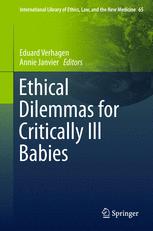

Most ebook files are in PDF format, so you can easily read them using various software such as Foxit Reader or directly on the Google Chrome browser.
Some ebook files are released by publishers in other formats such as .awz, .mobi, .epub, .fb2, etc. You may need to install specific software to read these formats on mobile/PC, such as Calibre.
Please read the tutorial at this link: https://ebookbell.com/faq
We offer FREE conversion to the popular formats you request; however, this may take some time. Therefore, right after payment, please email us, and we will try to provide the service as quickly as possible.
For some exceptional file formats or broken links (if any), please refrain from opening any disputes. Instead, email us first, and we will try to assist within a maximum of 6 hours.
EbookBell Team

4.0
76 reviewsMost neonates who now survive intensive care would have died 50 years ago, and “nature” would have decided the outcomes, making ethical discussions about initiating or withholding resuscitation irrelevant. Medical developments in neonatology have changed the way we respond to diseases of neonates, to their illness, and to their parents. Not only as physicians, but also as a society.
Decisions on when to start, withhold, or withdraw life-saving interventions in critically ill neonates are among the most difficult decisions in pediatric practice. These decisions are fraught with ethical dilemmas, for example deciding whether withholding intensive care –leading to death- is superior to uncertain survival with a risk of disability and the additional burden of intensive care. This book covers important ethical questions that arise in neonatal intensive care units. Questions such as, whether to intervene medically and whether we are good at predicting the outcome of fragile neonates; whether a medical intervention should be withheld or withdrawn, and who should be primarily responsible for these decisions and how?